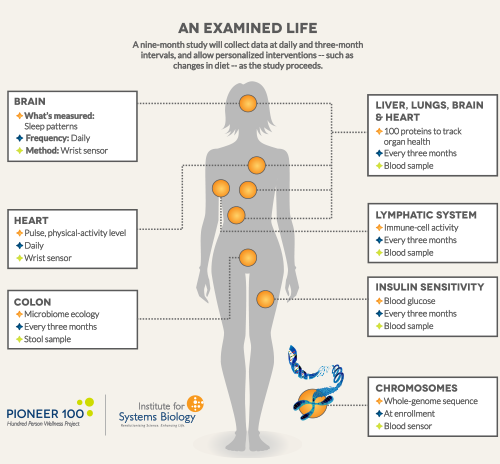Nature News: ‘Medicine Gets Up Close and Personal’ – Dr. Lee Hood’s Vision for Wellness
 isbscience.org/news/2014/02/11/nature-news-medicine-gets-up-close-and-personal-dr-lee-hoods-vision-for-wellness/
isbscience.org/news/2014/02/11/nature-news-medicine-gets-up-close-and-personal-dr-lee-hoods-vision-for-wellness/
"Even in its pilot phase, the project is unusually thorough. The ISB will sequence the whole genome of each participant at the outset. And in later phases, Hood says, the study team will also examine epigenetics: methylation and other modifications to DNA that can reflect environmental exposures. But that is just the tip of the data-collection iceberg." — From 'Medicine Gets Up Close and Personal' in Nature
The journal Nature pubished a news article today (online Feb. 11, 2014/print Feb. 12, 2014) about Dr. Lee Hood's vision for the 100K Wellness Project. The project will launch in March first with a 100-person study that eventually will scale to 100,000 individuals. Read the Nature article, written by W. Wayt Gibbs, at this link.
To learn more, watch a video of Dr. Lee Hood talk about his vision for the 100K Wellness Project:





